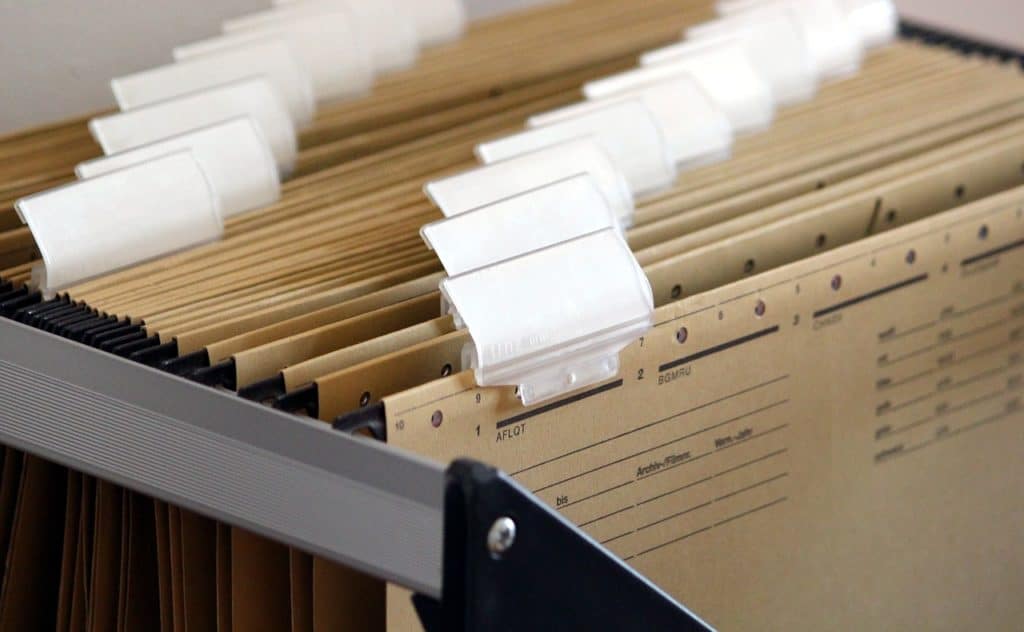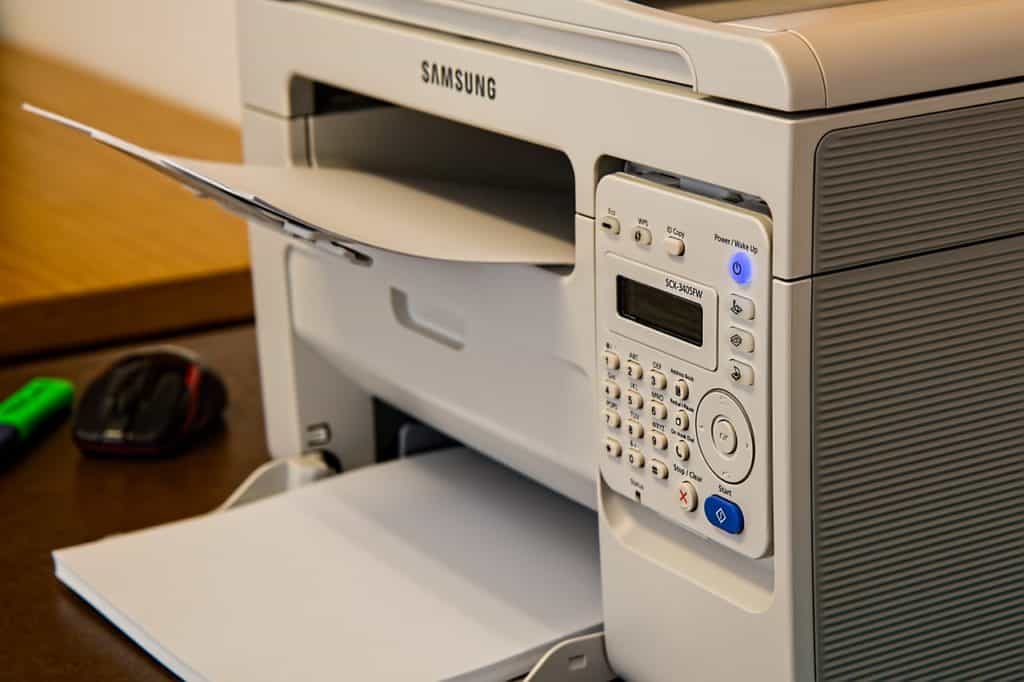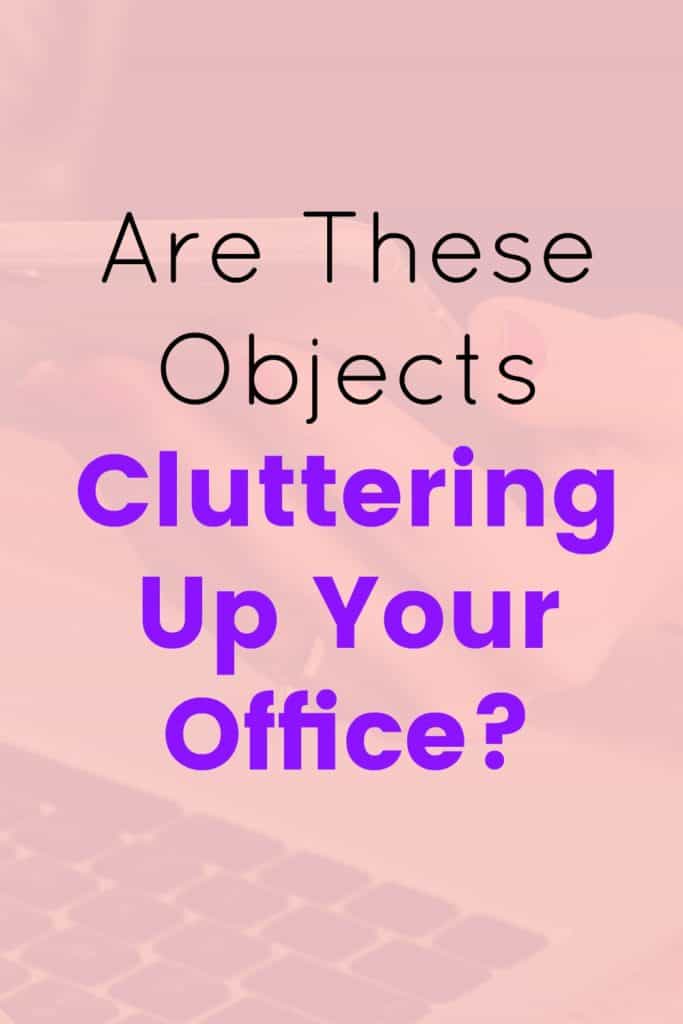Clutter is bad for the brain. It affects our concentration and encourages disorganisation. It also not a good sight for clients or new prospective employees to see. In some extreme cases, it can even be a health and safety hazard.
Digital technology is improving the way in which we run an office. It’s also made many commonplace pieces of office furniture defunct. Whilst there may be some obvious sources of clutter such as excessive desk ornaments and mugs, there may be other objects in your office that could be disposable due to technologic advancements – you just haven’t realised it yet. Here are just some of those objects.
Filing cabinets
The days of needing huge wall-to-wall filing cabinets are over. Whilst you may still need to cling onto the odd physical document for legal purposes, most of it can now be stored digitally.
In the effort to become greener, many businesses are now trying to paperless. Accountancy software has enabled all book-keeping to be done digitally. Press releases and news letters can be sent via email. Payslips, contracts and other documents can also be digitally shared.
Even signing documents can be done digitally now using a smartphone and a document signing app.
All this could make not only filing cabinets obsolete, but paper itself, saving you space and costs.
Printers & scanners
By going paperless, other devices also become purposeless. There are now online options for almost everything making it worthless having a printer in the office in most cases (certain jobs in the legal field may still need to keep physical copies). Getting rid of this device won’t only save desk space, but also free up the need to buy printer ink too.
Whilst you’re at it, of course, you can also get rid of your scanner. There are now app solutions for document scanning that can make it unnecessary to have this bit of kit.
Outsourcing could be another solution in the case of mass produced prints. This would save having to buy an industrial printer, simply sending files digitally to another company to print off in bulk.
Private servers
Companies often deal with huge amounts of files that may need to be easily sharable between multiple devices. Many businesses reacted to this by buying a private server for storing these files in. These private servers however take up space. They also have limitations when compared to the more recent popular trend of cloud storage.
Switching to the cloud allows you to store all your files on a remote server, freeing up the need to have a private server in the office. The cloud also has other benefits. You can access it from anywhere in the world from any device, providing you have the security details to access it. This means that you can work on a document from home or even look at a document on a tablet whilst meeting a client. Unlike a private server, the cloud also allows multiple people to access the same file at the same time. This can be useful if multiple people in the office each need to record things into a spreadsheet.
Many people have security concerns over cloud storage but these servers are very heavily guarded with encrypting and advanced methods such as ‘sharding’ making it virtually impossible for someone to hack them. If anything, the cloud can make a great backup tool instead of having an external hard-drive or USB flash drives.
Books
It’s good to read up as a business owner and there may be guides and advice books that you treasure. However, have you ever considered clearing your shelves and making all this literature digital?
Not only would this free up space, it might also allow multiple people to access the book if stored on the cloud. E-books are often cheaper and you don’t have to worry about them getting damaged. Of course, traditionalists are likely to be hostile to this idea – especially if the books are of personal value.
Telephone handsets
That’s right, you can get rid of your telephones too. But don’t get too excited, that doesn’t mean an end to phone-calls altogether. Instead of using a bulky landline handset, you could simply opt for a cloud based alternative and use a headset instead. Alternatively, if you’re not worried about being overheard (or indeed distracted), you could just buy a microphone to place on your desk and speak into.
Landlines do offer a secure line and may be more preferable in some businesses in which the odd attack of shaky wi-fi could be negatively impactful.
Taking minimalism to extremes
Some businesses have taken things even further when it comes to decluttering the office.
For example, chairs – who needs them? Due to the bad health effects of living a sedentary lifestyle, some office owners have opted for stand up desks. Whilst being on your feet may be less comfortable and difficult to implement on a workforce, it could be a good individual option for yourself if you want to spend less time sitting down.
You can even get rid of your computer. Recent touchscreen technology is finding ways to fuse our computers, monitors, keyboards and mice with our desks. These gadgets aren’t cheap but do exist.
And of course with smartphones and tablets getting more powerful, it may not be long before we don’t need a desk at all.
It’s unlikely that most people will go this far, however it does show how much of our office gear is no longer necessary due to digital advancements. Even by getting rid of a few of the aforementioned features, you could be dramatically saving space, resulting in cleaner and more practical work environment.





